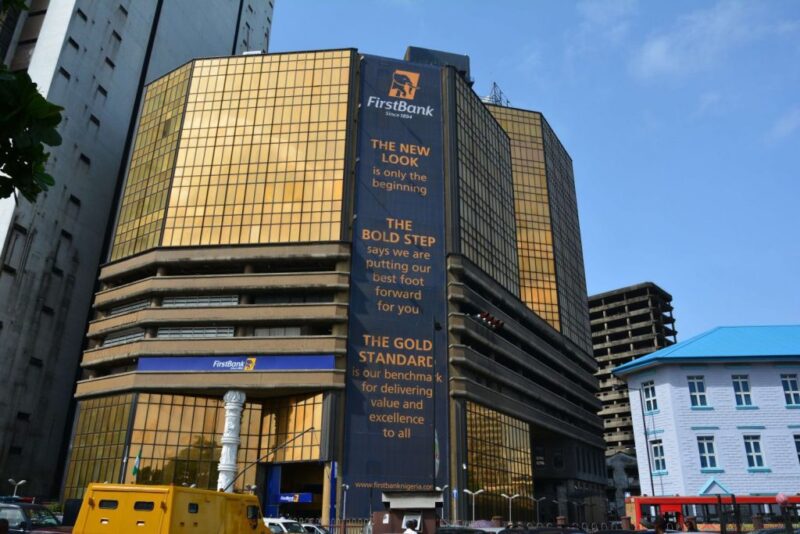FirstBank has confirmed a temporary disruption affecting its mobile and USSD banking services, leaving millions of customers unable to complete transactions. The outage, disclosed in a customer circular on Thursday, has impacted FirstMobile, FirstOnline, and the *894# USSD service.
In its notice, the bank stated:
“Please be informed that we are currently experiencing some downtime affecting transactions to other banks on FirstMobile, FirstOnline, and USSD platforms. Customers may therefore experience delayed or declined transactions.”
The bank also apologised for the inconvenience, adding that its technical teams are working with partner service providers to restore full functionality.
“We regret the inconveniences this may cause and appreciate your patience and understanding during this time. Our team is working with our partners to restore services as quickly as possible, and we will provide updates once services are fully restored,” the statement read.

FirstBank service disruptions amid improving technology
The disruption comes two months after FirstBank introduced facial biometric technology on its mobile application, FirstMobile. This was aimed at strengthening security and streamlining onboarding. The feature enables customers to enrol and activate devices without a debit card, using facial recognition and anti-spoofing detection to prevent impersonation.
The innovation was designed to support new customers without debit cards, diaspora clients, and individuals with lost or expired cards, while expanding access to digital transactions such as transfers, bill payments, and account management.
Yet, the current downtime underscores the broader challenge of recurring service interruptions in Nigeria’s banking industry. Other major lenders, including Access Bank, GTCO, and Zenith, have in recent years faced similar outages on mobile and USSD platforms. With a customer base exceeding 42 million, FirstBank’s digital ecosystem is central to Nigeria’s financial services network, and disruptions have ripple effects across households and businesses alike.
Infrastructure gaps and rising digital demands
Nigeria’s shift toward cashless banking has placed increasing pressure on financial institutions to scale their digital infrastructure. Transaction volumes continue to surge as more citizens adopt mobile apps and USSD codes. However, frequent outages highlight vulnerabilities in system resilience.
The Central Bank of Nigeria has consistently urged banks to upgrade their technology frameworks to reduce downtime and strengthen reliability. Data from the Nigerian Interbank Settlement System (NIBSS) showed that electronic payments rose by more than 40% year-on-year in 2024, reflecting the steep rise in digital adoption.


Despite this growth, gaps remain in managing peak demand during salary disbursements, festive seasons, and periods of economic volatility. FirstBank’s current downtime mirrors earlier cases across the industry, pointing to a sector-wide struggle to balance scale, speed, and stability.
Reliability of services is only one part of the challenge. As banks roll out advanced features, attention is also shifting to the protection of sensitive customer data. FirstBank’s biometric enrollment capability, for example, depends on capturing and storing facial data. Service interruptions naturally spark questions about how securely this information is maintained, especially on large-scale digital platforms.
Cybersecurity risks in Nigeria’s financial sector have been on the rise. Fraudulent USSD transactions, phishing attacks, and unauthorised access remain a growing concern as banks digitise more customer touchpoints. While biometric authentication is regarded as a tool to reduce fraud, it demands robust backend systems, strong encryption, and uninterrupted availability.
FirstBank has not reported any data breach linked to the current outage. Still, the disruption highlights the dual responsibility of banks: to maintain continuous access to services while safeguarding customers’ confidential information.
Impact on customers


For millions of customers who rely on FirstBank’s digital platforms, the disruption has halted essential financial activities such as money transfers, bill payments, and airtime purchases. Small businesses and enterprises that depend on instant transfers via FirstMobile or USSD channels are equally affected, with delays directly impacting day-to-day operations.
Although the bank has pledged a swift restoration of services, the incident reflects a wider concern about Nigeria’s capacity to support financial inclusion through digital channels. With physical bank branches unable to adequately serve the country’s fast-growing population, digital services have become indispensable, making reliability a critical factor for customer trust and economic stability.








